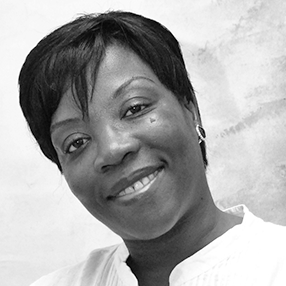translated from the Portuguese by Shook
They left the islands a legacy
of hybrid words and gloomy plantations,
rusted mills, breathless sterns,
sonorous aristocratic names,
and the legend of a shipwreck on Sete Pedras.
They arrived here from the North,
by mandate or by chance, in the service of their king:
navigators and pirates, slavers, thieves, smugglers,
simple men, rebellious outcasts too, and Jewish infants
so tender they withered like burnt ears of corn.
On their ships they brought compasses, trinkets, seeds,
experimental plants, atrocious sorrows,
a standard of stone pale as wheat,
and other dreamless, rootless cargos,
because the entire island was a port and a dead-end road.
All its hands were black pitchforks and hoes.
And there were living footprints in the fields slashed
like scars—each coffee bush now exhales a dead slave.
And on the islands they were
bold: arrogant statues on street corners,
a hundred or so churches and chapels
for a thousand square kilometers,
and the insurgent syncretism of roadside Christmas shrines.
And there was the palatial cadence of the ússua,
the scent of garlic and zêtê dóchi
on the témpi and ubaga téla,
and in the calulu, bay leaves blended with palm oil
and the perfume of rosemary and of basil from the gardens on our family land.
And the specters, tools of empire,
melted into the insular clocks,
in a structure of ambiguous clarities
and secular condiments,
patron saints and toppled fortresses,
cheap wines and shared dawns.
At times I think of their pallid skeletons,
their hair putrid at the edge of the sea.
Here, in this fragment of Africa
Where, facing the South,
a word rises high
like a painful flag.
Afroinsularidade
Deixaram nas ilhas um legado
de híbridas palavras e tétricas plantações,
engenhos enferrujados, proas sem alento,
nomes sonoros aristocráticos
e a lenda de um naufrágio nas Sete Pedras.
Aqui aportaram vindos do Norte,
por mandato ou acaso ao serviço do seu rei:
navegadores e piratas, negreiros, ladrões, contrabandistas,
simples homens, rebeldes, proscritos também, e infantes judeus
tão tenros que feneceram como espigas queimadas
Nas naus trouxeram bússolas, quinquilharias, sementes,
plantas experimentais, amarguras atrozes,
um padrão de pedra pálido como o trigo
e outras cargas sem sonhos nem raizes,
porque toda a ilha era um porto e uma estrada sem regresso.
Todas as mãos eram negras forquilhas e enxadas.
E nas roças ficaram pegadas vivas
como cicatrizes—casa cafeeiro respira agora um escravo morto.
E nas ilhas ficaram
incisivas—arrogantes estátuas nas esquinas,
cento e tal igrejas e capelas
para mil quilómetros quadrados,
e o insurrecto sincretismo dos paços natalícios.
E ficou a cadência palaciana da ússua,
o aroma do alho e do zêtê dóchi
no tempi e na ubaga tela,
e no calulu, o louro misturado ao óleo de palma
e o perfume do alecrim e do mlajincon nos quintais dos luchans.
E aos relógios insulares se fundiram
os espectros—ferramentas do império
numa estrutura de ambíguas claridades
e seculares condimentos,
santos padroeiros e fortalezas derrubadas,
vinhos baratos e auroras partilhadas.
Às vezes penso em suas lívidas ossadas,
seus cabelos podres na orla do mar.
Aqui, neste fragmento de África
onde, virado para o Sul,
um verbo amanhece alto
como uma dolorosa bandeira.
Copyright © 2021 by Conceição Lima and Shook. Published in Poem-a-Day in partnership with Words Without Borders (wordswithoutborders.org) on October 2, 2021, by the Academy of American Poets.
“The poem ‘Afroinsularity’ was written in 2004 in London when I was working as a journalist and producer for the Portuguese section of the BBC World Service. The text was born as a poetic creation fed by historical memory: an attempt to grow the chronology of my islands, my Macondo, my country, São Tomé and Príncipe. Inspired by some sort of inner demand, the painful genesis, the arrival of the Portuguese navigators, the plantation economy system based on slave labor, the island as a depot of enslaved continental Africans for other destinations—these sorrowful, painful burdens. Also from this brutal genesis the progressive emergence of a new entity, something particular, individual, with specific features. Some sort of surprising, even astonishing slow metamorphosis blending the fruits and flowers born from a violent, imposed, cruel encounter of cultures, and finally the revelation, the proud consciousness of this being oneself, an assumed sense of belonging to the mother continent, Africa, in a present not free of difficult challenges but with hope and confidence at the very heart of the poem, and the poem intending to be both a creation and a creator of this hope: the poem as the very house of hope, past, present, and future.”
—Conceição Lima

